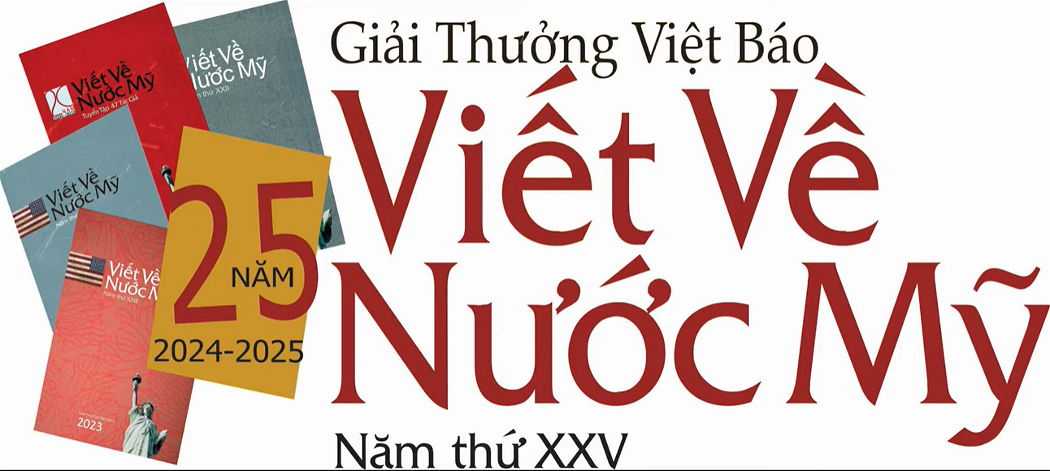
Đọc Ngô Thì Nhậm: Về Nước và Lửa
Nguyên GIác
Pháp của Đức Phật dạy là để xa lìa tham, sân, si. Đức Phật dạy rằng, bất kỳ ai xa lìa tham, sân, si đều sẽ giải thoát. Bài viết này sẽ khảo sát rằng ngài Hải Lượng Thiền Sư, tức là Ngô Thì Nhậm (1746-1803), đã dạy cách nào để xa lìa tham, sân, si trong tác phẩm Trúc Lâm Tông Chỉ Nguyên Thanh, một sách về Thiền Tông xuất bản lần đầu vào năm 1796.
Nơi đây, chúng ta dựa vào sách Ngô Thì Nhậm Toàn Tập - Tập V, ấn hành năm 2006 tại Hà Nội, do nhiều tác giả trong Viện Nghiên Cứu Hàn Nôm biên dịch.
Nơi đây, chúng ta chụp lại từ bản PDF nửa trang 144 của sách này:
Đoạn này được đánh máy lại như sau. Chữ "Thầy" trong đoạn văn là chỉ cho ngài Hải Lượng Thiền sư Ngô Thì Nhậm.
(Trích:)
Trang 144: NGÔ THÌ NHẬM TOÀN TẬP - TẬP V
- Lý (ý lẽ) không thể noi theo hết được, vậy thì dục (Hằng ham muốn) còn có thể cắt đứt hết được hay không?
Thầy nói: - Không cắt đứt thì đứt, muốn cắt đứt thì lại không đứt. Nước chảy cuồn cuộn, chảy đi thì cạn. Dập lửa lốm đốm, dập thì bùng lên.
Đồ đệ lại bạch với thầy rằng: - Có nước gì chẳng phải là nước không?
Thầy trả lời rằng: - Nếu nước được coi là nước, thì đó không phải là nước thật.
Lại bạch rằng: - Có lửa gì chẳng phải là lửa không?
Thầy trả lời rằng: - Nếu lửa được coi là lửa, thì đó chính là lửa giả. (Hết trích)
.
Lý nói trên chính là lý duyên khởi, là dòng vận hành đưa tới tất cả các hiện tượng hiển lộ và rồi biến mất. Nói rằng Lý thì không nói theo hết được, có thể dẫn ra một bản kinh lời Đức Phật dạy về một vị vua ra lệnh cho các quan chẻ cây đàn ra để tìm bắt âm thanh. Để các chuỗi âm thanh từ một ca khúc xuất hiện, là rất nhiều duyên để có cây rừng được đốn về để cho thợ đàn ráp thành đàn. Cây rừng dùng làm gỗ cây đàn thích nghi cần có mưa, có nắng, có thời gian nhiều năm mới mọc thành cây thích hợp. Để có bản nhạc, cần phải đào tạo một nhạc sĩ tài năng nhiều năm. Rồi người chơi đàn phải luyện nét đàn từ hàng chục năm nữa. Luật nhân duyên trùng trùng như thế. Do vậy, Ngô Thì Nhậm chỉ lặp lại lời Đức Phật dạy rằng không thể noi theo hết được.
Khi nói rằng dục không thể cắt đứt, Ngô Thì Nhậm chỉ nói theo nghĩa rằng duyên để dục hiện ra trong tâm người tu là có từ muôn đời, hễ muốn cắt đứt thì sẽ hỏng nếu không nhận ra lý duyên khởi. Vấn đề là cách nói kiểu Thiền Tông: nước là dụ cho tham, và lửa là dụ cho sân.
Ngô Thì Nhậm dạy rằng, “Nước chảy cuồn cuộn, chảy đi thì cạn. Dập lửa lốm đốm, dập thì bùng lên.” Vậy thì tu như thế nào để cạn nước và tắt lửa?
Câu trả lời của Ngô Thì Nhậm rất là lý thú, gợi nhớ Kinh Kim Cang. Kinh này từng viết rằng, “Nhược kiến chư tướng phi tướng tức kiến Như Lai.” Nghĩa là, nếu thấy các tướng không phải là tướng thì là thấy Như Lai, thấy Đức Phật.
Nghĩa là, nếu thấy những cái được thấy, được nghe, được cảm thọ... không phải là những cái được thấy, được nghe, được cảm thọ... thì là thấy Như Lai, thấy Đức Phật.
Như thế, khi nghe tiếng đàn, sẽ nhận ra không phải là tiếng đàn, sẽ nhận ra cái Không, cái Rỗng Rang của trùng trùng duyên khởi, thì sẽ không còn bị buộc ràng nữa.
Như thế, khi nhìn thấy một phụ nữ nhan sắc, sẽ nhận ra không phải là nữ, không phải là nam, không phải là bất kỳ cái ngã thể nào. Tất cả đều là rỗng rang, hư ảo trong cái lý duyên khởi trùng trùng vô tận. Đây cũng là câu trả lời ghi trong Kinh SN 5.2 Sutta khi Thánh Ni Soma bị Ác ma tới trêu ghẹo, rằng ngài Soma không còn thấy có tính nữ, không còn thấy có tính nam, không còn thấy có bất kỳ tự ngã nào ở đâu nữa cả. Đó là vô ngã. Đó là bình đẳng. Đó là không bị buộc ràng. Đó là giải thoát. Thấy thường trực như thế thì từ từ sẽ vắng bặt tham sân si, vì không còn duyên nào để buộc trói nữa.
Tuy nhiên, cốt tủy của lời dạy từ ngài Ngô Thì Nhậm là hãy thấy nước không phải là nước, hãy thấy lửa không phải là lửa. Đó là một tỉnh thức thường trực. Đó là Cái Biết đã được đánh thức thường trực để thấu suốt thực tướng của các pháp. Đó là tỉnh thức thường trực của người đã nhìn thấy cái Không hiển lộ trong bất kỳ những gì hiện ra trong sắc, thọ, tưởng, hành và thức.
Trường hợp này cho chúng ta hiểu rằng vì sao các chùa Việt Nam thường tụng Kinh Kim Cang. Và khi bạn ngẩng đầu lên, thấy ngôi chùa không phải là ngôi chùa thì là đường tu gần xong rồi.
.
.... o ....
Reading Ngô Thì Nhậm: About Water and Fire
Written and translated by Nguyên Giác
The Buddha's Dharma teaches the importance of relinquishing greed, anger, and delusion. According to the Buddha, those who successfully abandon these negative states will attain liberation. This article will explore how Zen Master Hải Lượng, also known as Ngô Thì Nhậm (1746-1803), instructed followers on overcoming greed, anger, and delusion in his book, "Trúc Lâm Tông Chỉ Nguyên Thanh," a foundational text on Zen Buddhism first published in 1796.
Here, we reference the book "Ngô Thì Nhậm Toàn Tập - Tập V," published in 2006 in Hanoi and translated by various authors at the Institute of Hán Nôm Studies.
Below, we present a photograph of half of page 144 from the PDF version of this book.
These paragraphs are retyped as below. The term "Teacher" in the paragraphs refers to Zen Master Ngô Thì Nhậm.
(Excerpt:)
Page 144: NGÔ THÌ NHẬM TOÀN TẬP - TẬP V
“The law of dependent origination cannot be traced to its source; therefore, can desire be completely eliminated?”
The Master said, "Attempting to cut it off will not result in its termination. Instead, clearly identify the causes and conditions, and they will naturally resolve themselves. Water flows in a whirlpool; if it is diverted, it will eventually dry up. Similarly, if you extinguish a fire unevenly, it will flare up again."
The disciple asked the teacher, “Is there any water that is not water?”
The teacher replied, “If water is considered water, then it is not real water.”
The student asked again, "Is there any fire that is not fire?"
The teacher replied, "If fire is considered fire, then it is false fire." (End of excerpt)
The principle mentioned above is known as dependent origination, which describes the process through which all phenomena arise and subsequently cease to exist. To illustrate that this principle cannot be traced back to a singular source, we can refer to a sutra in which the Buddha recounts a story about a king who commanded his officials to disassemble a lute to discover the origin of its sound. For the melodies produced by a song to emerge, numerous factors must come into play, including the cutting down of forest trees so that the lute craftsman can construct the instrument. The trees used to create the lute's wood require rain, sunlight, and many years to mature into suitable specimens. Additionally, to produce a piece of music, a talented musician must undergo years of training. The lute player must then practice the instrument's notes for decades. The law of dependent origination operates in a similar manner. Therefore, Ngô Thì Nhậm merely reiterated the Buddha's teaching that it is impossible to trace phenomena back to their original source.
When stating that lust cannot be severed, Ngô Thì Nhậm suggests that the root of lust's emergence in a practitioner's mind has existed since time immemorial. Eliminating it without understanding the principle of dependent origination is bound to fail. This statement carries a Zen-like quality: water symbolizes greed, while fire represents anger.
Ngô Thì Nhậm stated, "Water flows in a whirlpool; if it is diverted, it will eventually dry up. Similarly, if you extinguish a fire unevenly, it will flare up again."
How can one practice drying up water and extinguishing a fire?
Ngô Thì Nhậm's response is quite intriguing, as it evokes the teachings of the Diamond Sutra. This sutra states, "If you see that all appearances are not appearances, you are seeing the Tathagata." In other words, recognizing that all appearances are not what they seem allows you to perceive the Tathagata, or the Buddha.
That is, if you see that what is seen, heard, felt... is not what is seen, heard, felt... then you are seeing the Tathagata, seeing the Buddha.
Thus, when you hear the sound of a lute and come to understand that it is not merely the sound of a lute but rather a manifestation of Emptiness—the void arising from countless dependent originations—you will no longer be bound by the sound of the lute.
Thus, when you encounter a beautiful woman, you will come to understand that what you perceive is neither female nor male, nor is there any sense of self. Everything is empty and illusory within the endless cycle of dependent origination.
This reply is also the answer recorded in the SN 5.2 Sutta, where Noble Bhikkhuni Soma was taunted by the Evil One. Venerable Soma no longer perceived any female or male, nor did she see a self anywhere. This is selflessness. This is equality. This truth is liberation from bondage. By consistently recognizing this truth, you will gradually free yourself from greed, anger, and delusion, as there will no longer be any reason to bind you.
However, the essence of the teachings from Zen Master Ngô Thì Nhậm is to perceive water as not water and fire as not fire. This understanding represents a continuous awareness—a Knowing that is perpetually awakened to penetrate the true nature of all things. It embodies the constant awareness of one who has recognized the emptiness manifesting in all forms, feelings, perceptions, mental formations, and consciousness.
This case helps us understand why Vietnamese pagodas frequently recite the Diamond Sutra. When you lift your head and realize that the pagoda is not merely a pagoda, you will find that the path of practice is nearly complete.
THAM KHẢO / REFERENCE:
. Kinh SN 35.246. Bản dịch Thầy Minh Châu:
https://suttacentral.net/sn35.246/vi/minh_chau
. SN 5.2 Sutta. Translated by Bhikkhu Sujato: Surely someone who might think: ‘I am woman’, or ‘I am man’, or ‘I am’ anything at all, is fit for Māra to address (Chắc chắn hễ ai nghĩ rằng: "Tôi là nữ", hoặc "Tôi là nam", hoặc "Tôi là" bất cứ thứ gì, thì thích nghi cho Ma Vương thanh toán).
https://suttacentral.net/sn5.2/en/sujato
. Snp 5.7 Sutta. Translated by Bhikkhu Sujato: ...depending on nothingness, all else left behind,
freed in the ultimate liberation of perception (nương vào Không, mọi thứ khác bỏ lại phía sau,
được giải thoát trong giải thoát tột cùng của tưởng)
https://suttacentral.net/snp5.7/en/sujato


